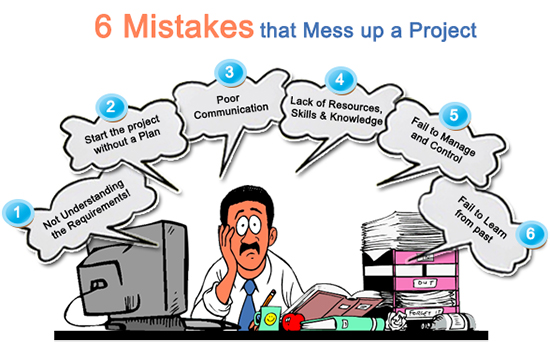6 Mistakes that Mess up an eLearning Project

A robust project management process is required, if you want to manage your projects efficiently, as per the scope, ensuring quality of the project, within the given time and cost. The rules of project management are applicable to eLearning development projects just as much as any other project.
Why do some projects get messed up? After handling hundreds of eLearning projects for our clients, we have identified the following mistakes ups causing some projects to not have the desired results.
Not understanding the requirements of the project
The first and foremost requirement is to understand the purpose of the project. What is the objective that needs to be achieved? Lack of clarity, on this fundamental aspect, rocks the very foundations of the project.
Starting the project without a plan
Planning ensures there is a definite direction to the team members, about their individual responsibilities. Having a project plan ensures that the team follows a pre-determined path, ensuring required resources and people are available, when required.
Poor communication
Lack of proper communication between team members, or with project stakeholders, is another factor that inhibits successful completion of project. We have technological resources today, with excellent communication channels; these when used effectively, can help deliver good results, even when stakeholders and members implementing projects, are located at different geographical locations.
Lack of resources, skills and knowledge
You need to have team members with the required skill set, they need to be provided with appropriate tools and the training to use them effectively; absence of this will result in a team, which lacks direction resulting in project failure.
Inability to manage and control
You need to have systems and process to ensure that the project is managed regularly and issues which crop up are handled at source, before it gets out of control. For this, a strong direction and team management skills are required.
Failing to learn from the past
Lastly, when things go wrong, we need to analyze the reasons for it and ensure these causes are not repeated in future. This means process and systems need to be constantly improvised, plugging any loopholes or shortcomings, with every new project. Failure to introspect and audit systems impedes growth.
The key to success of any project, is effective project management.





